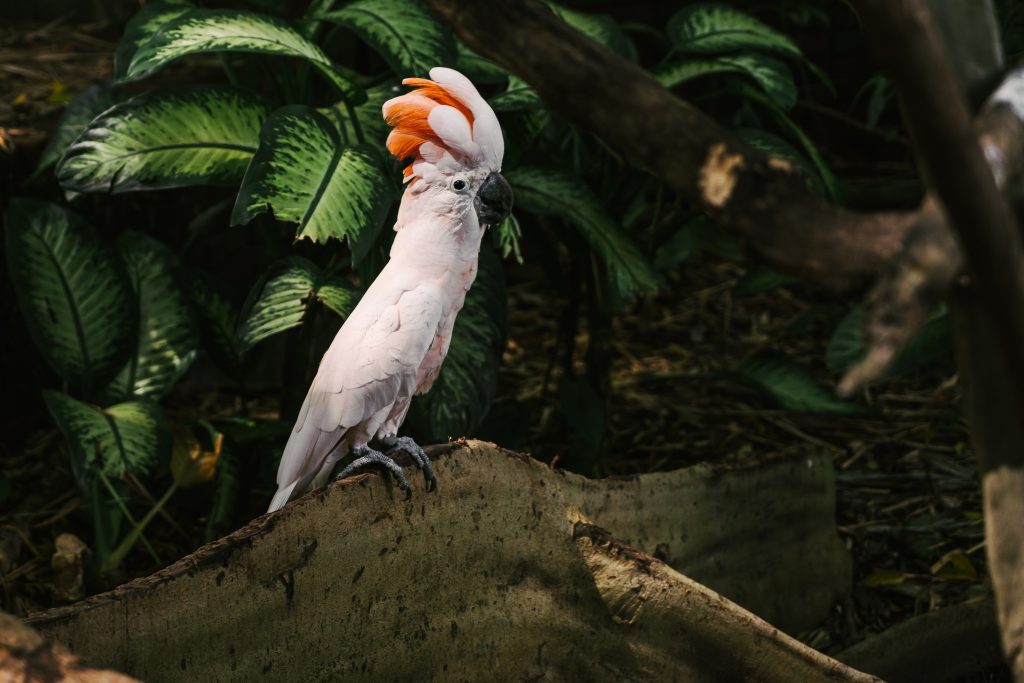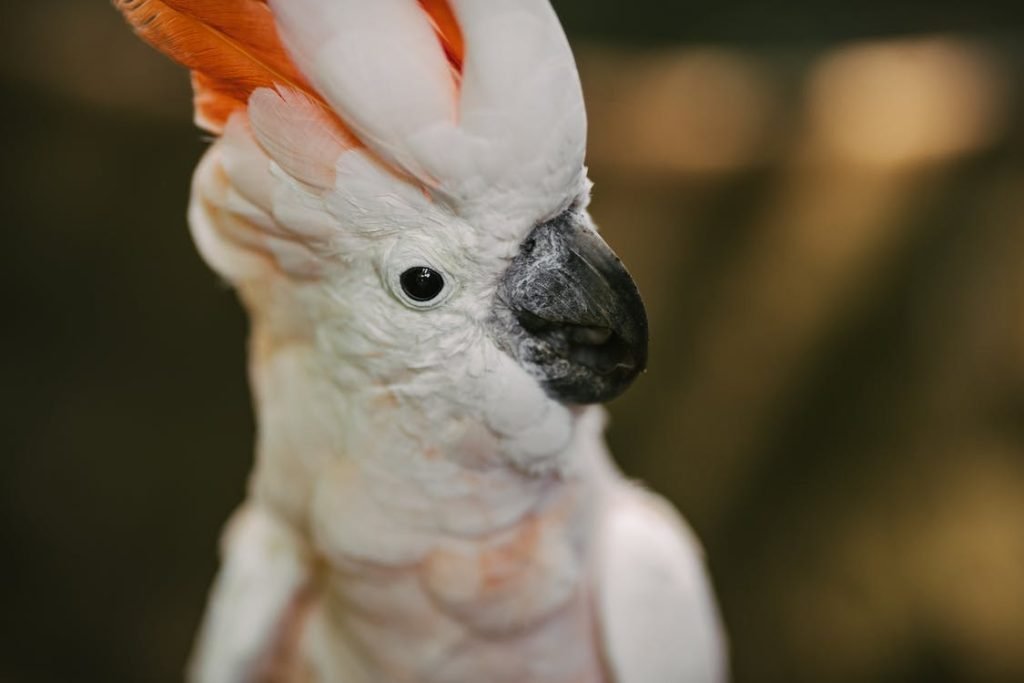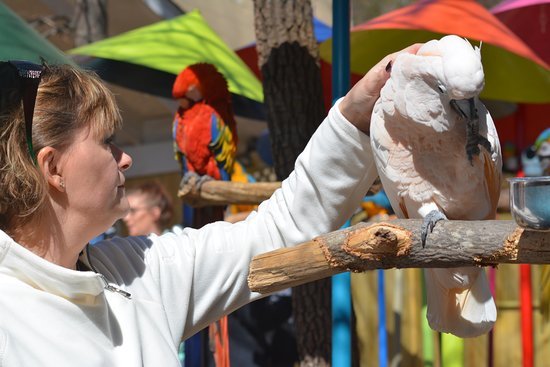 What are the basic needs of a cockatoo?
What are the basic needs of a cockatoo?
Cockatoos, with their charming personalities and striking appearance, have become beloved companions to bird enthusiasts around the world. However, to ensure the well-being and happiness of these intelligent and social birds, it’s essential to understand and meet their basic needs. In this comprehensive guide, we’ll explore everything you need to know about caring for a cockatoo, from their habitat and dietary requirements to socialization and health. Whether you’re a proud cockatoo owner or considering bringing one into your life, this article will provide you with the essential knowledge to provide the best care possible.
Table of Contents
- Introduction to Cockatoos
- Varieties and Characteristics
- Why Choose a Cockatoo
- Habitat and Cage Requirements
- Creating the Perfect Home
- Cage Essentials
- Dietary Needs and Feeding Habits
- Natural Diet
- Captive Diet
- Socialization and Interaction
- The Importance of Bonding
- Activities and Toys
- Health and Wellness
- Preventive Care
- Common Health Issues
- Training and Enrichment
- Positive Reinforcement
- Mental Stimulation
- Conclusion
1. Introduction to Cockatoos
Varieties and Characteristics

Cockatoos belong to the parrot family and are known for their vibrant personalities and beautiful plumage. These birds come in various species and colorations, with the most popular pet cockatoo species being the Umbrella Cockatoo, Sulphur-Crested Cockatoo, and Moluccan Cockatoo. Each species has its unique characteristics, but all share common traits, such as a crest of feathers on their heads that they can raise and lower.
Why Choose a Cockatoo
Cockatoos make wonderful companions for those who are willing to meet their needs. They are known for their affectionate and social nature, often forming strong bonds with their human caregivers. Their intelligence and playful demeanor make them highly engaging pets. However, it’s crucial to be aware of the responsibilities that come with owning a cockatoo, as they require significant attention and care.
2. Habitat and Cage Requirements
Creating the Perfect Home

Providing a suitable habitat for your cockatoo is essential for their physical and mental well-being. Here are some key considerations:
- Location: Place the cage in a location where your cockatoo can be part of the family’s daily activities while also having a quiet, secure retreat when needed.
- Lighting: Ensure your cockatoo has access to natural light, as it’s essential for their health and overall well-being.
- Temperature: Maintain a comfortable temperature range between 70 to 80 degrees Fahrenheit (21 to 27 degrees Celsius) and avoid exposing them to drafts.
- Safety: Remove any potential hazards from the environment, such as toxic plants, chemicals, or small objects that could be ingested.
Cage Essentials
Selecting the right cage is crucial to your cockatoo’s comfort and safety. Here’s what to look for:
- Size: Choose the largest cage your space and budget allow. Cockatoos are active birds and need room to move and stretch their wings.
- Bar Spacing: Ensure the bar spacing is appropriate for your cockatoo’s size to prevent escape or injury.
- Perches: Provide a variety of perches with different thicknesses to exercise their feet and prevent foot problems.
- Toys and Enrichment: Include toys, puzzles, and activities to keep your cockatoo mentally stimulated and engaged.
3. Dietary Needs and Feeding Habits
Natural Diet

In the wild, cockatoos primarily feed on a diet of fruits, nuts, seeds, and vegetation. Their varied diet provides them with essential nutrients and hydration. They spend a significant part of their day foraging for food, which keeps them mentally and physically active.
Captive Diet
When kept as pets, cockatoos should receive a balanced diet to maintain their health. A quality pellet mix forms the foundation of their diet, supplemented with fresh fruits, vegetables, and occasional nuts. Foods like apples, broccoli, and carrots provide essential vitamins and minerals.
4. Socialization and Interaction
The Importance of Bonding

Cockatoos are highly social birds that thrive on interaction with their human caregivers. Building a strong bond with your cockatoo is essential for their mental well-being. Spend time talking, playing, and cuddling with them daily. They enjoy being part of the family and should be included in your daily activities.
Activities and Toys
Provide your cockatoo with plenty of toys and activities to keep them mentally stimulated. Toys like puzzle feeders, foraging toys, and chew toys are excellent choices. Regularly rotate their toys to prevent boredom, and spend time playing with them to strengthen your bond.
5. Health and Wellness
Preventive Care
Maintaining your cockatoo’s health requires routine care and monitoring. Here are some essential aspects:
- Regular Vet Check-Ups: Schedule annual check-ups with an avian veterinarian to monitor your cockatoo’s health and detect any potential issues early.
- Feather and Beak Care: Keep an eye on their feathers and beak, as any abnormalities may indicate health problems.
- Hygiene: Maintain a clean cage and provide access to clean, fresh water at all times.
Common Health Issues
Cockatoos can be prone to specific health issues, including respiratory infections, feather plucking, and beak problems. It’s crucial to be vigilant and seek veterinary care if you notice any changes in their behavior, appearance, or eating habits.
6. Training and Enrichment
Positive Reinforcement
Training your cockatoo using positive reinforcement techniques can be a fun and rewarding experience. Teach them basic commands, tricks, and behaviors that enhance their mental stimulation and physical activity. Always use positive reinforcement, such as treats and praise, to reward desired behaviors.
Mental Stimulation
Cockatoos are highly intelligent birds that require mental stimulation to prevent boredom and destructive behavior. Offer them puzzle toys, rotate their toys regularly, and provide opportunities for foraging and problem-solving.
7. Conclusion
Caring for a cockatoo is a fulfilling and lifelong commitment. These intelligent and affectionate birds thrive in an environment where their physical and